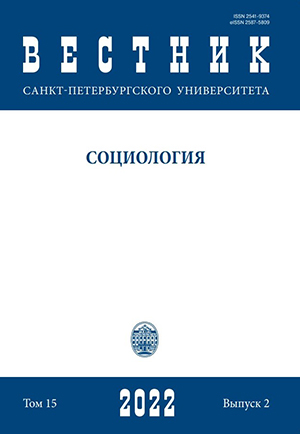Citizens E-participation in the modern metropolis: Area and specifics
DOI:
https://doi.org/10.21638/spbu12.2022.201Abstract
The paper explores the history of the development of the e-communication environment for interactions between the authorities and citizens in the electoral metropolis of St. Petersburg. The paper presents the results of a comprehensive exploratory study with two components. The first study was conducted in 2021 using the expert survey method, attended by 60 people from among employees of government and local governments, management companies, organizations in the housing and communal services sector, representatives of the scientific and educational community, and city activists. The second study, conducted by surveying 354 employees of 43 executive bodies of state power, reveals assessments and opinions of officials on the nature of the exercise of the right to a position owned by citizens, as well as increasing the level of development of society in the social a group of employees of the executive bodies of state power of St. Petersburg. The results of these empirical studies are interpreted in the context of data, obtained through surveys of the population and employees of St. Petersburg. The results of a survey of civil servants, as well as experience, confirmed the need to support the authorities in order to increase the influence of the population. In the authorities, interaction and information exchange between officials is quite clearly built, and representatives of this group positively assess the effects of using electronic formats of interaction with the population.
Keywords:
electronic interaction, electronic services, expert survey, authorities, social capital,, authorities, social capital, civic engagement, metropolis
Downloads
References
Downloads
Published
How to Cite
Issue
Section
License
Articles of "Vestnik of Saint Petersburg University. Sociology" are open access distributed under the terms of the License Agreement with Saint Petersburg State University, which permits to the authors unrestricted distribution and self-archiving free of charge.




